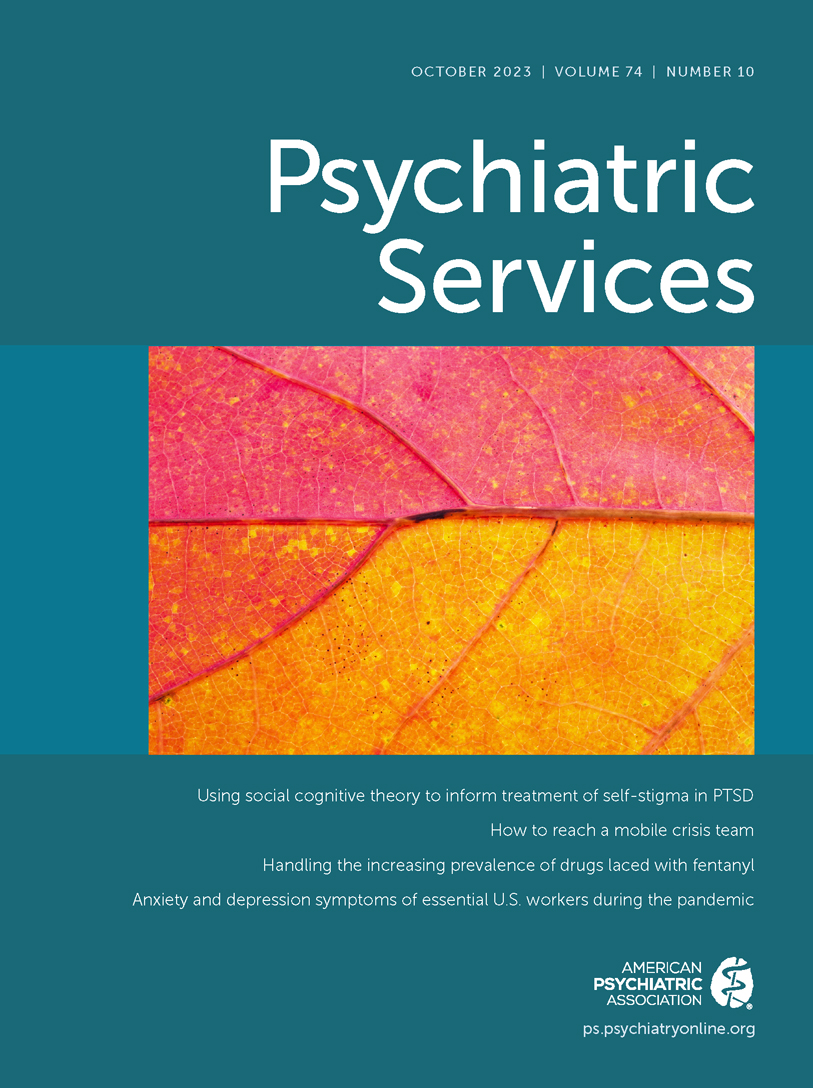Experiences of Black Adults Evaluated in a Locked Psychiatric Emergency Unit: A Qualitative Study
Abstract
Objective:
Evidence shows that Black individuals have higher rates of coercive emergency psychiatric interventions than other racialized groups, yet no studies have elevated the voices of Black patients undergoing emergency psychiatric evaluation. This qualitative study sought to explore the experiences of Black individuals who had been evaluated in a locked psychiatric emergency unit (PEU).
Methods:
Electronic health records were used to identify and recruit adult patients (ages ≥18 years) who self-identified as Black and who had undergone evaluation in a locked PEU at a large academic medical center. In total, 11 semistructured, one-on-one interviews were conducted by telephone, exploring experiences during psychiatric evaluation. Transcripts were analyzed with thematic analysis.
Results:
Participants shared experiences of criminalization, stigma, and vulnerability before and during their evaluation. Although participants described insight into their desire and need for treatment and identified helpful aspects of the care they received, they noted a mismatch between their expectations of treatment and the treatment received.
Conclusions:
This study reveals six major patient-identified themes that supplement a growing body of quantitative evidence demonstrating that racialized minority groups endure disproportionate rates of coercive interventions during emergency psychiatric evaluation. Interdisciplinary systemic changes are urgently needed to address structural barriers to equitable psychiatric care.
Access content
To read the fulltext, please use one of the options below to sign in or purchase access.- Personal login
- Institutional Login
- Sign in via OpenAthens
- Register for access
-
Please login/register if you wish to pair your device and check access availability.
Not a subscriber?
PsychiatryOnline subscription options offer access to the DSM-5 library, books, journals, CME, and patient resources. This all-in-one virtual library provides psychiatrists and mental health professionals with key resources for diagnosis, treatment, research, and professional development.
Need more help? PsychiatryOnline Customer Service may be reached by emailing [email protected] or by calling 800-368-5777 (in the U.S.) or 703-907-7322 (outside the U.S.).



